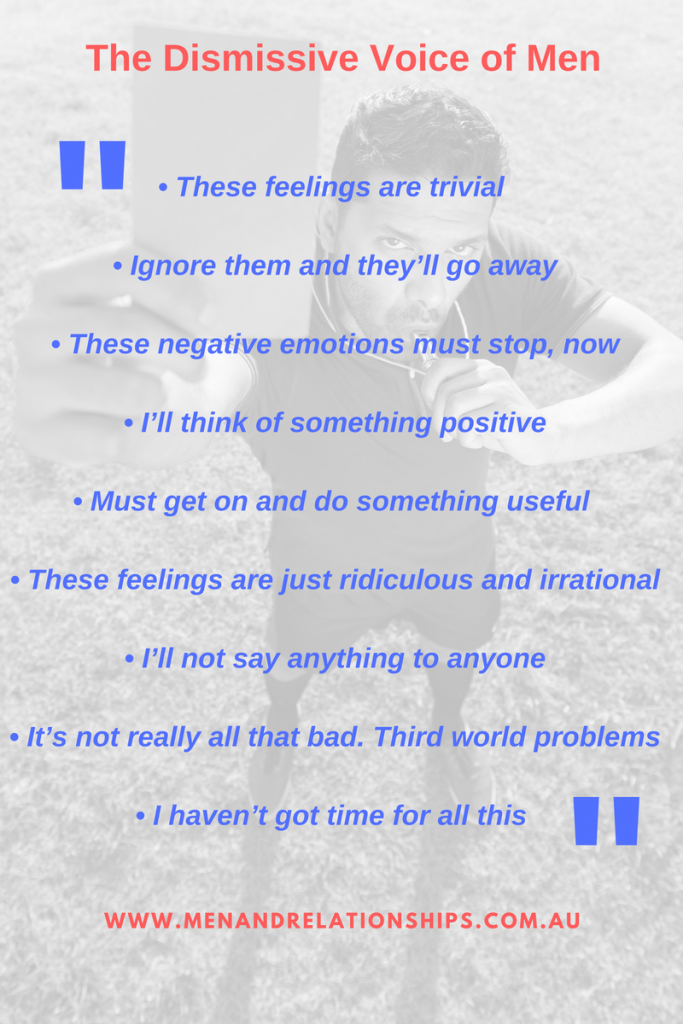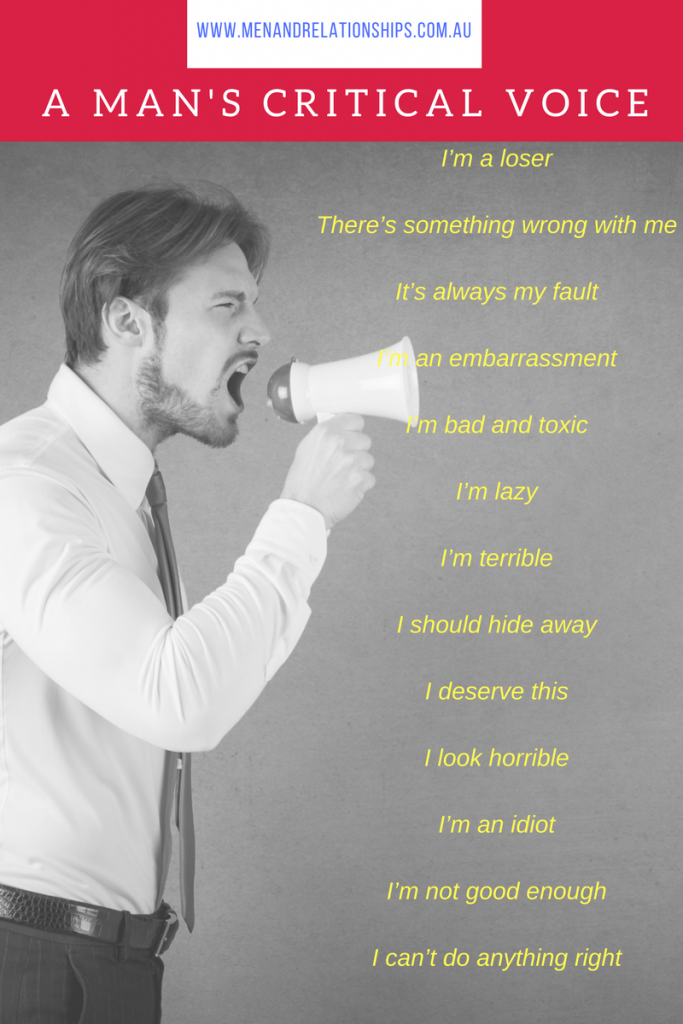Is your state of mental health influenced by how you talk to yourself!
Do you talk to yourself? Do you talk aloud or do you keep it inside your head?
Many of us have an ‘internal voice’ in our head. It’s a kind of running commentary that narrates our experience of life.
It responds to the external events of the world as well as our inner world of thoughts and feelings.
Does that sound a little strange? Go with me on this!
What do you say to yourself when you are unhappy?
How do you sound inside your own head? What’s your tone?
What are you saying about the feelings and thoughts you have?
The voice in our head will either help or hinder us.
I have heard hundreds of men speak about themselves in consistent tones. They are:
- Dismissive
- Critical
- Both!
The dismissive voice
Many of us have dismissing dialogues with ourselves and others. It’s a gentle tone, a warm, caring voice that is great at logic.
Dismissing makes sense particularly because we haven’t got the time or energy to be more accepting of our thoughts and feelings .
The problem with dismissing is that it can minimise or reject our experience. And that can hurt!
Here are some real life dismissive statements. I borrowed them straight out of the minds of men.
Contrast dismissing statements with the second most common way men speak with themselves and they seem no big deal.
The critical voice
This is the voice that reminds us we are not measuring up or not doing it right. The critical voice can be dominant and pushy.
The dialogue contains harsh judgement, blame and creates overwhelming shame.
Where does the dialogue come from?
Our internal chatter may resemble the voices of:
- One or both of our parents
- A teacher, sports coach, uncle, aunt or grandparent.
- A unique voice that we have adapted and created over time.
Both the dismissing and critical voice influence our behaviours in both positive and negative ways.
The good, bad and the ugly
The Good
When men are stressed or overwhelmed their dismissing voice tends to call them to action.
Men love being rational and practical! They tell themselves to:
- Go to the gym
- Go for a run
- Work in the shed
- Mow the lawn
- Have a beer with a mate
- Cook a meal
- Play with the kids
- Walk the dog
- Clean the car
- Play with the phone
- Finish a work task
Dismissing is powerfully distracting, massively de-stressing and unbelievably productive!
How clean can you get the car when your mad with your partner?
Criticism, of the constructive kind, can also be motivating and encouraging. However for this to work we need a particular focus on behaviour and outcome.
If we are to get good insight from constructive criticism we need to ensure we resist over personalising but give ourselves a heap of respect.
The Bad and the Ugly
Dismissing can exacerbate mental and emotional health problems because they become brilliant avoidant techniques!
How many times can we clean the car, mow the lawn or drink beer with a mate before we have to face our feelings?
Possibly lots of times!
Criticism that’s harsh and self-punishing hurts us more because it creates more conflict and provides very little resolution.
Dismissing and Criticising triggers :
- Shame
- Guilt
- Sadness
- Anger
- Frustration
- Embarrassment
- Disappointment
- Hopelessness
The impact can be devastating. Men in particular can:
|
|
Staying stuck in these inner dialogues create more ‘wounds’.




